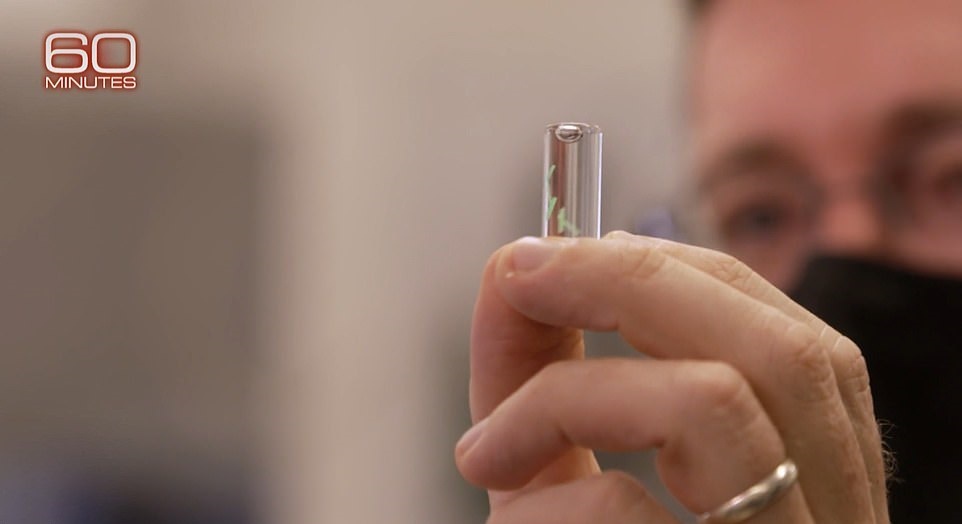The “subdermal implant,” as scientists are calling it, is now in the late-stage testing phase and was developed by the Defense Advanced Research Projects Agency, a top-secret Pentagon unit established during the Cold War to study emergent technologies for military use, “60 Minutes” reported.
“It’s a sensor,” said Ret. Col. Dr. Matthew Hepburn, a program manager for DARPA. “That tiny green thing in there, you put it underneath your skin, and what that tells you is that there are chemical reactions going on inside the body and that signal means you’re gonna have symptoms tomorrow.”
The doctor suggested the implant is similar to a “check engine light” that, if fully implemented, would potentially be used by the military to detect an infected officer before he or she could infect fellow soldiers.
Once the gel-like microchip is inserted under the skin, it continuously checks the blood of the recipient for the presence of COVID-19.
To explain the technology, “60 Minutes” correspondent Bill Whitaker recalled the viral outbreak aboard the U.S.S. Theodore Roosevelt, which saw more than 1,150 sailors infected with COVID-19 last spring.
“Sailors would get the signal [from the microchip], then self administer a blood draw, and test themselves on site,” he said of how the new tech could be used to prevent another deluge of infections.
Hepburn said the results would return within three to five minutes.
“As you truncate that time,” the researcher explained, “as you diagnose and treat, what you do is you stop the infection in its tracks.”




















